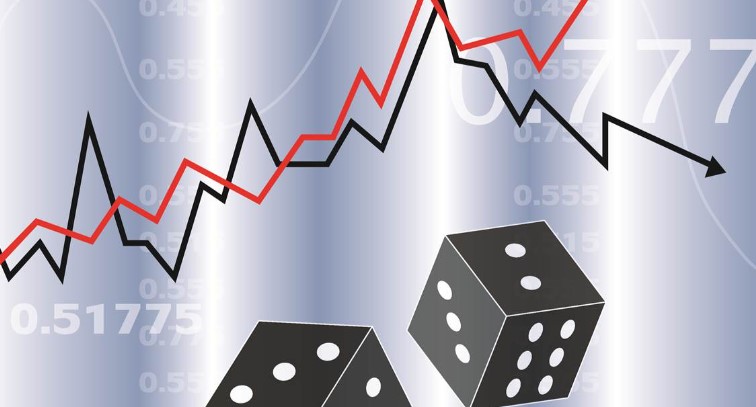TABLE OF CONTENTS:
In the realm of risk and unpredictability, both trading and gambling seem to dance on the same floor, but they each hold distinct tunes in their underlying principles and goals. As we explore this intricate dance, we’ll uncover the genuine disparities between these two practices, understanding the heartbeat of their purposes, methodologies, and how they handle risk.

At the core of trading and gambling lies a fundamental difference in purpose and objective. Trading emerges as a financial journey, a quest for investment and wealth creation. It involves the intricate art of buying and selling financial instruments – stocks, bonds, currencies, or commodities – with the grand vision of nurturing profit over the long term. Traders don their analytical hats, researching market trends and making decisions grounded in a rational balance of risk and reward.
On the flip side, gambling is more of a merry-go-round, a form of entertainment where participants throw in their chips on the roulette of uncertain outcomes, fueled by the hope of winning some extra coin. The thrill isn’t about wealth creation, but the sheer excitement and joy derived from the rollercoaster of chance. Luck and happenstance play a more prominent role in gambling than the strategic decision-making ethos that defines trading.
Another fascinating facet that distinguishes trading from gambling is the unique approach each adopts. If we look at forex trading vs gambling specifically, differences are even more clear. Trading takes on a methodical stance, weaving a tapestry of analysis, research, and thoughtful decision-making. Traders are akin to artists, employing various strategies – technical analysis, fundamental analysis, and risk management techniques – to craft their investment masterpieces. Success in trading demands not just knowledge but also discipline and the ability to adapt gracefully to the ever-changing market rhythms.
Conversely, the world of gambling often lacks the meticulous brushstrokes found in trading. It’s more of a spontaneous canvas painted with randomness and chance. Slot machines, roulette wheels, or lottery draws rely heavily on the fickle finger of fate rather than the skillful hands of a strategist. Even games like poker or blackjack, which involve an element of skill, tip the scales significantly in favor of chance. Gambling thrives on impulse, lacking the structured and research-driven methodology synonymous with trading.

The heartbeat of any financial venture lies in risk management, and this is where trading and gambling diverge in a profound way. In the trading realm, risk management is a disciplined maestro orchestrating various techniques to minimize potential losses and safeguard precious capital. Traders skillfully set stop-loss orders, diversify their portfolios, and play with position sizes like a seasoned conductor. The aim is to navigate the unpredictable market terrain, preserving capital over the long term, even when faced with the stormy winds of volatility.
In stark contrast, the realm of gambling often lacks the same level of risk management finesse. Many gamblers willingly wade into high-risk waters, chasing the thrill of the game with the potential for significant losses. While a rare breed of professional gamblers may apply some risk management principles, the overall culture of gambling tends to celebrate the daring spirit of risk-taking.
Trading and gambling also dance to different rhythms when it comes to time horizons. Trading is a patient waltz, with investors holding positions for weeks, months, or even years. Their gaze is fixed on the distant horizon, where trends and fundamentals unfold over extended periods, allowing them to ride the waves of market fluctuations and economic cycles.
In contrast, gambling is more of a quickstep. Most gambling activities deliver immediate results, with outcomes determined in the blink of an eye. It’s a fast-paced, exhilarating experience that adds to its allure as a form of entertainment. Yet, this rapid tempo also amplifies the potential for swift gains or losses.
In this intricate dance between risk and reward, trading and gambling each tell a unique story. Trading, a strategic and systematic pursuit, weaves together research, analysis, and disciplined decision-making in the quest for wealth creation. On the flip side, gambling is a lively waltz with chance, driven by entertainment and the thrill of the unexpected.
Recognizing these distinctions is crucial for those entering either arena. For those seeking to build wealth steadily and make informed financial decisions, trading may be the preferred partner. On the contrary, for those drawn to the immediate gratification and the heartbeat of chance, gambling might provide the perfect rhythm. Regardless of the chosen dance, a clear understanding of the associated risks is paramount, guiding participants to make informed decisions aligned with their individual objectives and risk tolerance.